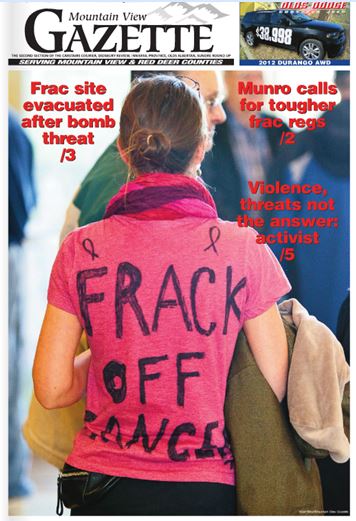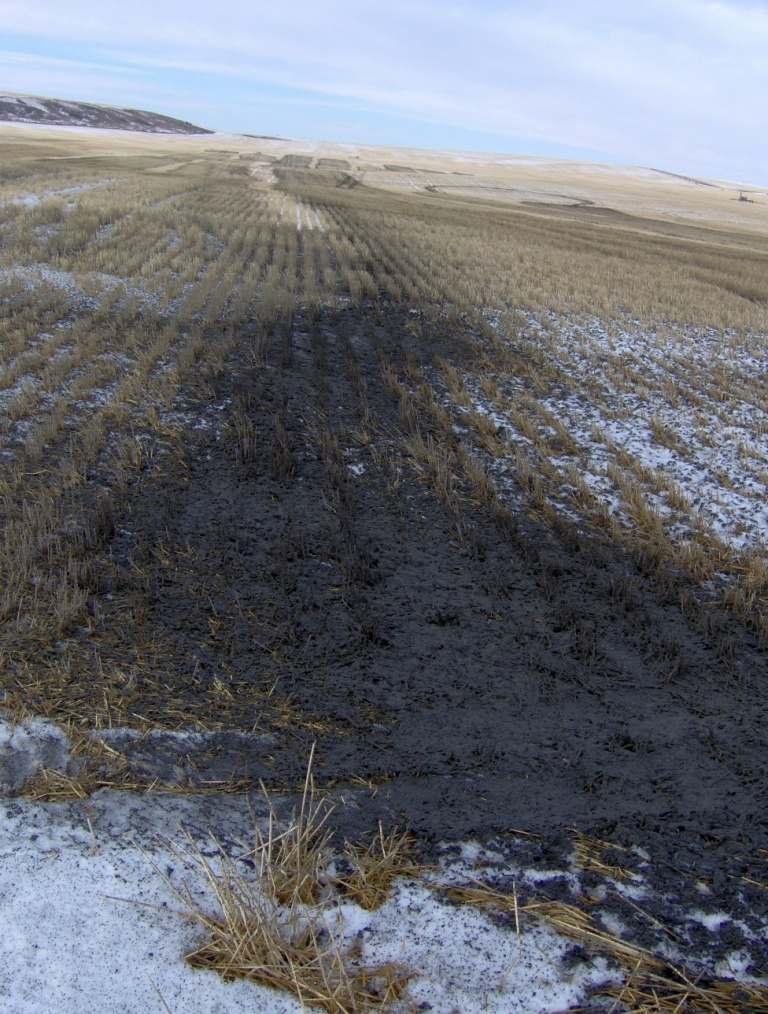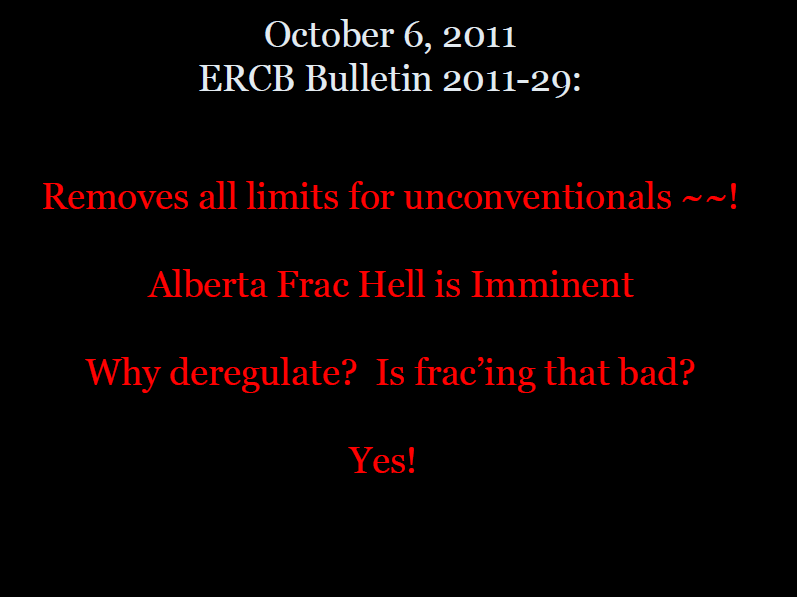Republican Bills Again Seek To Make Road Dumping Of Conventional Drilling Wastewater Legal by PA Environment Digest, April 9, 2021
Senate and House Republicans last week introduced House Bill 1144 (Causer-R- Cameron) and Senate Bill 534 (Hutchinson-R-Venango) which would not only roll back environmental protection standards for conventional oil and gas wells, but would also make road dumping of drilling wastewater legal again.
Although Gov. Wolf vetoed similar legislation in November [Read more here], Senate and House Republicans introduced their original versions of the bills they had in last session.
These bills were introduced as a follow up to action by the General Assembly to kill DEP’s final updated conventional drilling regulations in 2016 because the industry thought they were too strict.
The law then created the PA Grade Crude Development Advisory Council, made up of all industry-related individuals, that was supposed to “advise” DEP on development a new update to the conventional drilling regulations, but so far no draft regulations have been discussed by the Council since it was created in 2016.
DEP said in September it plans to move ahead with developing updated regulations covering conventional drilling since “legislative discussions have not resulted in a viable product….” Read more here.
Over 195 statewide and local environmental groups and over 1,655 citizens have made it clear to legislators they oppose this legislation. Read more here.
Road Dumping Of Drilling Wastewater
Of particular concern are provisions related to legalizing the road dumping of drilling wastewater from conventional operations.
The House removed those provisions before sending the bill to the Governor last year, but they are back again in the new bills.
As a result of a 2017 appeal to the Environmental Hearing Board, DEP’s Oil and Gas Program imposed a moratorium on all road dumping of wastewater from wells in the state in 2018.
However, the dumping of wastewater from oil and gas wells on roads is still authorized under the DEP Waste Management Program under a co-product determination which allows the use of waste that has similar properties to commercial products as if it was that product.
While DEP told the Citizens Advisory Council in January they have no plans to develop a regulation or permit to authorize the road spreading of wastewater from wells, DEP and the Pennsylvania Grade Crude (Oil) Development Advisory Council have been in discussions on the issue most of last year and this year.
Recent research by Penn State and others has shown the road spreading of wastewater from wells as a dust suppressant is not only not effective, but contaminates the roads and wash sediment and pollutants into nearby streams.
There has also been other research pointing to not only environmental but also health impacts from using oil and gas well wastewater for dust control. Click Here for a summary.
Another recent study found that between 1991 and 2017, 240.4 million gallons of wastewater from conventional oil and gas wells were applied to roads, according to DEP records.
A report released by Earthworks in September documented how 380 million barrels of Pennsylvania oil and gas drilling wastewater (conventional and unconventional) was disposed of, including by road dumping.
The annual report of the Crude (Oil) Development Advisory Council contains a special section devoted to the issue of oil and gas production water issues, including the goal of reinstating the road spreading program, leaving no doubt about their political intentions.
Road Dumping Anywhere
The Penn State Institutes of Energy and the Environment last year released a map showing unpaved roads in Pennsylvania, each of which could become new dumpsites, if the General Assembly passes these legalizing the road dumping of conventional oil and gas drilling wastewater.
The primary areas to be affected would be unpaved dirt and gravel roads any where there is conventional oil and gas drilling in the state.
On November 12, Berks Gas Truth reported 132 organizations and 1,130 citizens have signed on to a letter to Senate and House lawmakers and Gov. Tom Wolf objecting to the bills last session legalizing the road dumping of drilling wastewater and providing other benefits to conventional drillers, including a loosening of the requirements for reporting spills.
The letter says in part, “We, the undersigned, are writing to protest your refusal to follow the established process in a rush to get a win for the industry you have come to believe you represent.”
“Pennsylvanians are getting tired of the industry’s every wish being our government’s command. ![]() Many Canadians (that know industry runs everything) are too.
Many Canadians (that know industry runs everything) are too.![]() For months, we have been calling for an investigation into the alarming number of diagnoses of rare cancers in children in the shale fields.
For months, we have been calling for an investigation into the alarming number of diagnoses of rare cancers in children in the shale fields.
“No response.
“Instead, our elected officials have pushed several bills, Senate Bill 790 being just one, that would roll back environmental protections and provide the natural gas and petrochemical industries with subsidies and incentives.
“It’s a sad day when a public health crisis that has already killed thirteen young people takes a back seat to reinstating the very kind of toxic practices that may be linked to their deaths.” said Karen Feridun, Founder of Berks Gas Truth.
The letter closes, “Doing the bidding of the natural gas industry is not your job. You are in Harrisburg to represent the best interests of Pennsylvanians. You are failing us, regularly and miserably. We call on the House to stop both Senate Bill 790 and House Bill 1635 (a similar measure introduced this year). Should they fail to represent our best interests, we call on Governor Wolf to commit to vetoing whichever bill reaches his desk.”
Click Here for a copy of the letter.
The new bills were referred to the Senate and House Environmental Resources and Energy Committees for consideration.
Sen. Gene Yaw (R-Lycoming) serves as Majority Chair of the Senate Environmental Committee and can be contacted by calling 717-787-3280 or sending email to: email hidden; JavaScript is required. Sen. Carolyn Comitta (D-Chester) serves as Minority Chair and can be contacted by calling 717-787-5709 or sending email to: email hidden; JavaScript is required.
Rep. Daryl Metcalfe (R-Butler) serves as Majority Chair of the House Environmental Committee and can be contacted by calling 717-783-1707 or sending email to: email hidden; JavaScript is required. Rep. Greg Vitali (D-Delaware) serves as Minority Chair and can be contacted by calling 717-787-7647 or sending email to: email hidden; JavaScript is required.
Related Articles:
— Senate Passes Bill To Legalize Road Dumping Of Conventional Drilling Wastewater 26-23 Without Debate
— Op-Ed: Will Our Dirt Roads Again Be Used As Dumping Sites For Oil & Gas Well Wastewater
[Note: The following are other House and Senate Republican environmental and energy proposals introduced so far. It is not a complete list–
House Republican 2021 Environmental & Energy Agenda – Bad
— House Republicans Reintroduce Bill To Kill Regulations By Doing Nothing
— House Budget Hearing Fails To Address A Single Critical Budget Issue Faced By DEP Or DCNR
Senate Republican 2021 Environmental & Energy Agenda -Bad
— Senate Republican Bills Kill Regulations By Doing Nothing, Shield Violators From Enforcement
Senate Republican 2021 Environmental & Energy Agenda – Not Bad
— Senators Laughlin, Haywood Announce Bipartisan Bill To Increase AEPS Solar Share To 5.5%
— Sen. Scavello Reintroduces Legislation To Enable Community Solar Projects
— Sen. Yaw Introduces Bill To Control Overuse Of Fertilizer On Turf; 11th Year For Consideration
Refer also to:
Eagle Valley woman Kim Mildenstein urges action on traffic concerns
Alberta: Kimberly Mildenstein on the cover of Mountain View Gazette, 2012

Read how dreadfully AER and industry treated Kimberly and her family in Andrew Nikiforuk’s Slick Water.
2012: How Encana/Ovintiv got rid of its toxic waste in my community:

What do the chemicals do to the crops and livestock grown/raised on toxic industrial waste and in human bodies after eating them? Who knows, no one is monitoring it. Industry has a reason for not allowing AER to have a public health mandate.


2010: Natural Gas Operations from a Public Health Perspective
For many years, drillers have insisted that they do not use toxic chemicals to drill for gas, only guar gum, mud, and sand. While much attention is being given to chemicals used during fracking, our findings indicate that drilling chemicals can be equally, if not more dangerous.

